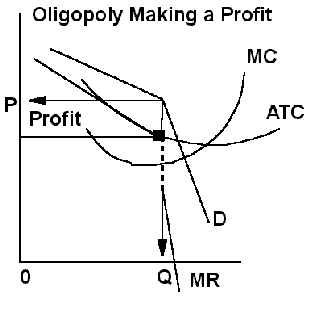
A. An oligopoly market exists
when barriers to entry result in a few producers.
1. Products may be
homogeneous or
differentiated.
2. Examples include many industrial products such as steel and consumer
goods like soda.
3. Automobile, steel,
game
consoles and
other oligopolistic industries lost monopoly power
because of the foreign
invasion beginning in the 1970's.
a. Eventually American companies became more competitive.
b. The price was lower real wages for manufacturing workers.
c.
The
oligopolistic nature of the video game consol market
4.
Concentration ratios
measure the amount of total output controlled by a few firms.
a.
eight-firm concentration ratio - Amosweb is Economics ..
b.
four-firm concentration ratio -Amosweb
5. Readings
a. Six
movie studios movie studios receive
90% of American film revenues.
b. The television industry is mostly an oligopoly of five companies:
Disney/ABC
,
CBS
c.
NBC
Universal
Time
Warner and
News Corporation See
Concentration of media ownership
.
d. Four major
music companies receive 80% of recording
revenues.
e. Four wireless providers control 89% of the cellular telephone market.
f. There are just six major book publishers.
g. Healthcare insurance in the United States consists of very few insurance
companies controlling
major market share in most states. For example, California's insured population of 20 million is
the most
competitive in the nation and 44% of that market is dominated by two insurance
companies, Anthem and
Kaiser Permanente.
h.
Anheuser-Busch and
Miller Coors control about 80% of the
beer industry.
B.
1. Kinked
demand
2. Collusive pricing
3. Price
leadership
Please